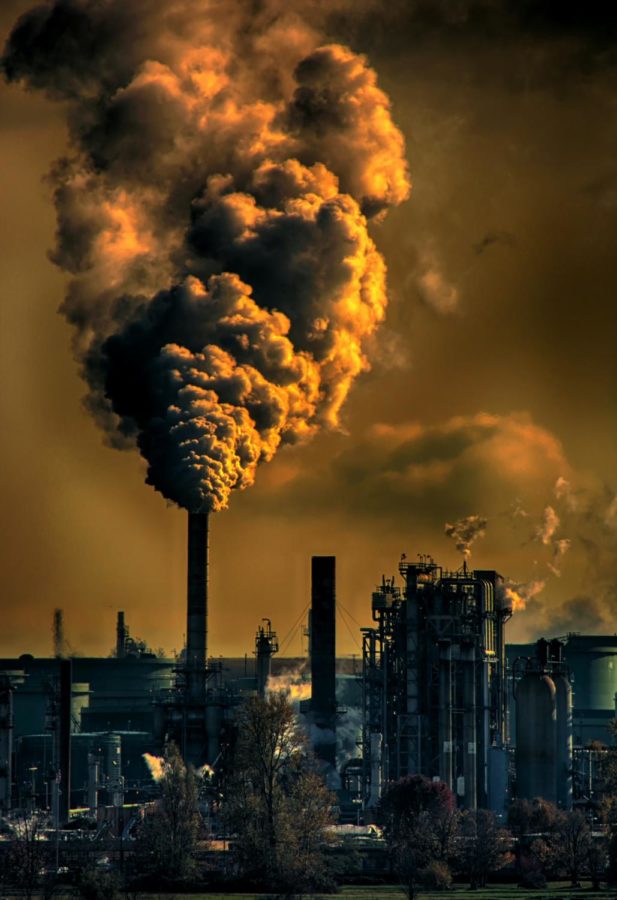This Year’s Climate Change Conference, COP26: A Bust, or a Hope For the New Age?
An analysis of the recent climate change conference in Glasgow and the events surrounding it
The red line is already here, and if the Climate Change Conference doesn’t get a substantial and actionable plan completed, then it might be too late to save our planet.
The time has come for world leaders to come together and combat one of the world’s biggest issues, if not the biggest issue, facing us as a species — climate change.
This year’s climate change conference, known as COP26, for ‘Conference of the Parties,’ isvthe 26th time countries have gathered for this conference, hence the ’26.’ It was held in Glasgow, Scotland, with the United Kingdom as president of the conference, which was held from October 31st, 2021 through November 12th, 2021.
In 2015, at a previous COP conference in Paris, an agreement was made in the hopes that global warming would reduce to 1.5 degrees Celsius. Every fraction of a degree equates to the loss of lives and livelihoods. Twenty thousand years ago, it only took an increase in 5 degrees celsius to eliminate all of the glaciers — this change took five thousand years — and now, we are seeing a more rapid increase in temperatures, meaning similar catastrophes in a lesser amount of time.
Let’s discuss the Glasgow agreement. As of right now, current pledges will probably only limit the increase in temperature to 2.4-celsius degrees. However, the goal is still to limit the increase to 1.5-Celsius degrees to prevent climate catastrophe. Some good news is that there was a clear and direct plan for nations to reduce the use of coal. Additionally, to mitigate the effects of carbon emissions from developing countries, a trillion-dollar fund will be set in place by 2025 to assist these countries in switching to clean energy. Other agreements include mitigating deforestation, backing up clean technology with $130 trillion dollars, and cutting methane emissions by 30%.
But what keeps these world leaders in check? Quite frankly…nothing. The commitments made at the climate conference will have to be self-policed, as no actual administration oversees every country’s actions on their pledges. But that has not stopped the public from using their democratic rights to change the tide. One way the public influences leaders to stick by their pledges is through protest. Loud and passionate cries for leaders to “Do Better” and “Keep 1.5 Degrees Alive” were heard in Glasgow. The “Global Day of Action for Climate Justice ” march began in Kelvingrove Park and made its way to Glasgow Green in a three-mile route. But voices were not only heard in Glasgow, Scotland — citizens in another 100 countries including Kenya, Turkey, France, Brazil, Australia, and Canada also voiced their concerns and pleas for an actionable and productive climate change conference in order to save the earth.
Many people are dissatisfied with world leaders, or at least disappointed at how little progress has been made with past conferences. As Jonathan Fang ’22 noted, “These conferences don’t really get things done,;some experts have already said that we might be over the redline needed to stop some of the detrimental effects of climate change.” Many people cling to the arguably unlikely hope that massive strides will be taken to rectify the loss of promises from the previous conferences. Perhaps the question to focus on is how we can ensure that leaders deliver on their promises, instead of what those promises are? Maybe we should move away from this belief in our administrations to self-police, and instead establish something greater to actualize their pledges.
Climate experts and activists hope that we can stay within the 1.5 degrees safe zone in order to avoid the most severe effects of climate change. A lot is uncertain about the future, but one thing is for sure. The move for a better climate and future for all people is something that the entire world wants, needs, and that people are willing to fight for.
But what keeps these world leaders in check? Quite frankly…nothing. The commitments made at the climate conference will have to be self-policed, as no actual administration oversees every country’s actions on their pledges.
Samgar Aidarhanov is a News Editor for 'The Science Survey.' Samgar has found that good journalism is more of an experience than a compilation of words....











